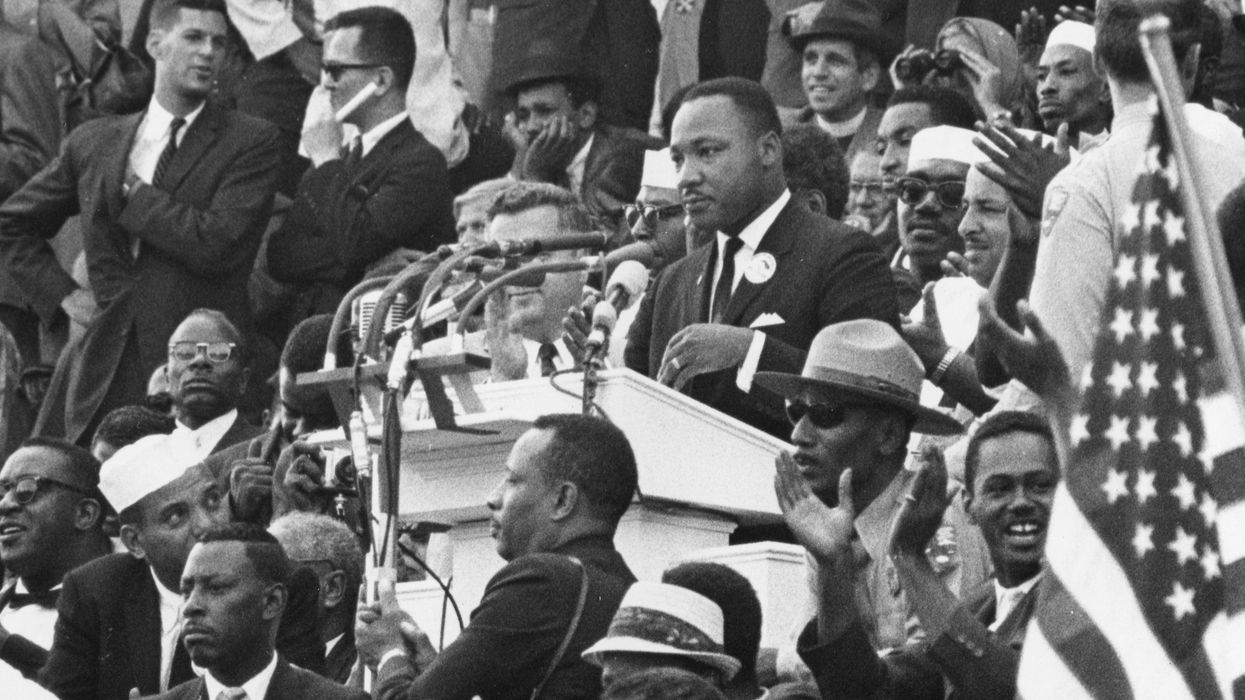Johnson is a United Methodist pastor, the author of "Holding Up Your Corner: Talking About Race in Your Community" and program director for the Bridge Alliance, which houses The Fulcrum.
As the dust settles on another contentious election cycle, Americans are left to ponder the lasting impact of the countless speeches delivered by those vying for our votes. These orations, often derided as mere "campaign rhetoric," are, in fact, far more profound. They represent a timeless exercise of the ancient concept of "logos" — the art of using words to paint vivid pictures, conjure entire worlds and shape the very course of our nation.
Logos, derived from the Greek word for reason or discourse, uses logical, rational arguments to persuade and convince others. It has been a driving force in American politics since the republic's earliest days, with leaders continually harnessing its power to inspire, educate and call their fellow citizens to action. From Abraham Lincoln's soaring Gettysburg Address to Martin Luther King Jr.'s impassioned "I Have a Dream" speech, logos has been the engine of social and political change throughout history.
The power of logos have been on full display in the political speeches delivered by this cycle's presidential candidates, Kamala Harris and Donald Trump, in the campaign's final days. Standing on the hallowed grounds of the National Mall, Harris summoned the spirits of suffragists and civil rights activists who once fought for a greater cause. Her words wove a tapestry of struggle and progress, culminating in a call to action that felt deeply personal and universally relevant. She reminded her listeners that the story of America is one of constant striving, of a nation forever reaching for its highest ideals. And she issued a challenge — to continue that journey, to push forward even when the path ahead proved challenging.
Contrast this with Trump's discourse, which conjures a world of grievance, division, and nostalgia for a bygone era. His words often seek to stoke fear and anger, to create a sense of us versus them and to position himself as the champion of those feeling left behind. He speaks of a declining nation, threats lurking around every corner and enemies at the gate. Trump's is a rhetoric of resentment, a call to arms against the forces of other than himself. Where Harris' words were inclusive, Trump's are exclusive. Where she sought to heal, he sought to divide. In his vision, America is a fortress under siege, not a beacon of hope for the world.
These two oratorical approaches represent fundamentally different visions of what America is and what it can be. They demonstrate logos' power to unite, divide, inspire or inflame. This dual nature of political speech will only become more critical in the days and years ahead. On one hand, it can be a force for unity and uplift, bridging divides and inspiring collective action towards a common purpose. Through the power of words, leaders can tap into our shared values and aspirations, reminding us of the ties that bind us together as a people. They can paint a vision of an inclusive and just future where every voice is heard and every story is valued. In this way, political speech can heal wounds, mend fractures and rebuild a sense of common purpose.
On the other hand, it can be a weapon of polarization, a tool for sowing discord and an entrenching of existing fault lines. With divisive and inflammatory rhetoric, leaders can exploit our fears and deepen our divisions. They can create an "us versus them" mentality, where those who disagree are not just opponents but enemies. This kind of speech poisons our public discourse, making it impossible to find common ground or work toward the common good.
Moving forward from this election, the question of how we will wield the power of logos will shape the course of history for generations to come. Will the choice of our words be to lift each other or to tear each other down? Will we seek to heal and unite or to divide and conquer? The answer to that question will determine whether America remains a source of hope and symbol of freedom for the world. Or will we succumb to the forces of fear, anger and resentment. We are remembering the profound power of words to shape our collective destiny. As the ancient Greeks knew well, logos is not just a tool of persuasion — it is the force that gives meaning and direction to our lives.




















Trump & Hegseth gave Mark Kelly a huge 2028 gift